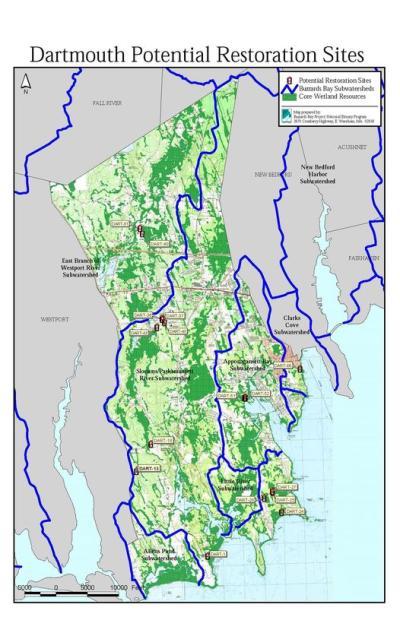State extends public comment period on proposed septic regulation changes
Following the request of the town's representatives on Beacon Hill, the state’s Department of Environmental Affairs announced Friday that it would delay any decisions on updating its septic tank regulations in order to garner more public feedback.
According to MassDEP, the deadline for public comment will move from Dec. 16 to 5 p.m. Jan. 30, 2023.
The state will also hold two informational sessions on Jan. 17 and 18, along with two virtual public hearings on Jan. 24 and 25.
In a letter sent to the department dated Dec. 9, State Rep. Chris Markey (D-Dartmouth) and State Sen. Mark Montigny (D-New Bedford) wrote “more time is needed to review the science that is being used to back these regulatory changes” and for a “fair assessment” of problems they and many residents have.
The two also wrote they are “disappointed by the lack of transparency and public access to information surrounding every aspect of this process” — something residents and local officials have also voiced displeasure with.
“While we appreciate the need to curtail pollution and minimize nitrogen in the estuaries of Buzzards Bay, the current solution proposed by the [DEP] is troubling and has exhibited many shortcomings,” the letter read. “Our greatest concern is ensuring that the best interests of homeowners in our district are protected.”
In an effort to decrease the amount of nitrogen entering the region’s waterways, the state proposes towns either apply for “watershed permits” or have septic system owners upgrade their tanks to ones using “best available nitrogen technology” — which is estimated to cost upward of $15,000 per installation.
Proponents argue that revising the regulations is the best step to take to ensure clean waters, while local officials are skeptical if this is the most effective route to take.
Opponents such as Public Health Director Chris Michaud say there is no reason a town like Dartmouth should be subject to the same regulatory standards as a place like Cape Cod.
Markey and Montigny agree.
“The one size fits all approach to the application of these regulations does not account for the diversity in the topography of the different regions being impacted by these proposed changes,” they wrote. “Surely, the needs of Provincetown are not the same needs as a town like Dartmouth.”
The lawmakers also questioned whether septic systems in towns like Dartmouth are as major a polluter as the state claims. According to the state, 29% of nitrogen entering the Slocum River is from on-site septic. For the Westport River, the state found septic tanks accounted for 34% of total nitrogen pollution.
Meanwhile, Markey and Montigny say the surplus is “being driven by private industries such as large-scale for-profit composting.”
In addition to requesting a delay in any decision, Markey and Montingy encouraged the department’s Nitrogen Sensitive Area Subcommittee — the body responsible for making the regulatory recommendations — to have their membership and affiliations made public and easily accessible.
Still, they are thankful to see the state acknowledge their concerns.
“While I am pleased that the department has responded to our concerns by extending the public comment period, they must do more to restore trust in this process and consider the very significant impacts that this proposal will have on private homeowners and taxpayers generally,” Montigny said “We will continue to engage in this process until such time that the department can assure residents complete transparency and that no one will be forced into financial ruin while private, for-profit nitrogen generators continue to enjoy a free ride.”
Emails can be sent to dep.talks@mass.gov and must have “Title 5 & Watershed Permit” in the subject line. All comments submitted must include the name and contact information of the resident.
A copy of the letter sent to MassDEP is attached to this story.












